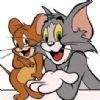1. Impotence would be known to Pandu before he even got married. if he knew, he wouldn't have taken the chance of it becoming public by getting married. He might have gone the Bheeshma route and taken some vow to cover it up and adopted some boy as heir, maybe Suyodhan.
2. Infertility, however, is discoverable only when the man actively tries to have kids. Which is probably what happened.
3. The curse was put out because it is hard on the man's ego to admit he can't father children, let alone sons.
4. Pandu raping Madri and her fighting is part of MBh text. So yeah, he could do the deed. And yeah, she fought back. He ended up dead. Unless there was a 3rd party in the picture, she killed him. Or he got instant karma from the universe. Madri's reaction in the scene is funny. She asks Kunti not to let the boys see her and kills herself before.
@FP We assume women of the era accepted husbands had rights on women's bodies. Yeah, the men definitely treated them like that. But the texts don't give women voice to tell us what they thought. Clearly, Madri disagreed. Clearly, Panchali disagreed she was obligated to provide sexual favors. She called her emperor husband a drunk and a gambler in public. Clearly, Amba disagreed.
5. The rishis and relatives who fathered the Pandavas wouldn't have been ordinary men. Durvasa boon leading to deities agreeing to Niyoga would be coincidence of monumental proportions. Or it was a story added after the fact to explain Karna as divine birth as well.
The sequence would be like this:
Karna's birth
Pandu-Kunti-Madri-infertility
Pandu asking about Niyoga.
Them having boys.
Deity story put about without any mention of boon (because the text was written after the fact)
Later Karna story comes out. To protect, Kunti's reputation, Durvasa boon story is put out.
Edited by HearMeRoar - 3 years ago



















comment:
p_commentcount